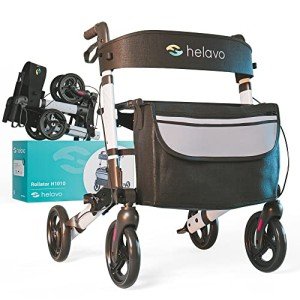A Comprehensive Guide to Medical Walkers: Enhancing Mobility and Independence
In the world of health care, Mobility Aid plays an essential role in rehab and general well-being, especially for seniors and those recuperating from injuries. Among the myriad of mobility aids available today, medical walkers stand apart as versatile tools that assist in motion and improve self-reliance. This post will look into the types, benefits, factors to consider, and FAQs concerning medical walkers.

What is a Medical Walker?
A medical walker, often referred to as a walking frame, is an encouraging gadget created to assist individuals with mobility obstacles stroll with higher stability and ease. Walkers offer a broader base of support compared to walking canes and crutches, making them perfect for those with balance problems or restricted strength.
Types of Medical Walkers
| Type | Description | Features |
|---|---|---|
| Standard Walker | A fundamental four-legged frame without wheels, used mostly for stability. | Lightweight, sturdy, adjustable height, ideal for indoor and outdoor usage. |
| Wheeled Walker (Rollator) | A walker with wheels on the front legs, permitting easier movement. | Equipped with hand brakes, a seat for resting, and storage choices. |
| Hemi Walker | A walker created for people who can use one arm and need support. | Lightweight and compact, features a curved handle for easier gripping. |
| Bariatric Walker | Designed for bigger people, offering increased weight capacity and stability. | Boosted toughness, wider frame, and encouraging features for heavier users. |
| Knee Walker | A distinct alternative for those with leg injuries, enabling them to rest the knee. | A platform to support the injured leg, steering abilities, and brakes. |
Advantages of Using a Medical Walker
- Improved Stability: Walkers offer additional points of contact with the ground, resulting in a more Stable Walker walking experience.
- Increased Independence: Users can browse their environment without requiring assistance, increasing confidence and self-reliance.
- Improved Safety: The danger of falls is significantly decreased, as walkers offer support to those with balance problems.
- Flexible Usage: Many walkers are created for both indoor and outdoor usage, adjusting to different surfaces.
- Assistance during Rehabilitation: Medical walkers are vital during recovery from surgical treatments, injuries, or diseases.
Factors to consider When Choosing a Medical Walker
When picking a medical walker, various aspects must be born in mind:
| Consideration | Description |
|---|---|
| User's Condition | Assess the person's strength, coordination, and particular needs. |
| Devices Weight | Make sure the walker is lightweight enough for easy handling but strong enough for support. |
| Adjustable Height | The walker ought to be adjustable to fit the user's height for optimum comfort and performance. |
| Hand Grip Comfort | Check that the grips are comfortable to hold for extended durations. |
| Weight Capacity | Ensure the walker can support the user's weight, particularly for bariatric walkers. |
| Storage Needs | Determine if extra features like baskets or trays are required for carrying items. |
Regularly Asked Questions (FAQs)
How do I determine if I need a walker?If you experience problem in keeping balance, feel unstable walking, or need assistance on flat surface areas or inclines, it's a good idea to speak with a healthcare specialist for an assessment. Can I use a Senior Walker outdoors?Yes, specially created
walkers with bigger wheels(wheeled walkers or rollators)are ideal for outdoor use and can manage numerous surfaces successfully. How do I preserve my walker?Regularly inspect the walker for loose parts, ensure wheels are oiled if
suitable, and clean it as needed. Speak with
the maker's guidelines for particular maintenance guidelines. Are walkers covered by insurance?Many insurance plans offer coverage for walkers, but it is vital to talk to your supplier to understand your specific policy
details. Can a walker help with physical therapy?Yes, utilizing
a walker can support rehabilitation efforts by offering stability during workouts advised by physiotherapists. Medical walkers are indispensable tools that not
just facilitate movement and self-reliance but likewise substantially enhance the lifestyle for individuals facing mobility obstacles. With different types available, selecting the ideal walker is
essential to fulfilling individual needs. The journey to regaining mobility can be complicated, but with the ideal equipment and support, individuals can overcome barriers and reclaim their independence. By comprehending the kinds of walkers, their advantages, and essential considerations, users can make informed options-- causing a much safer, more confident method of moving through life. Whether it's a Reliable Rollator Walker for outdoor adventures or an easy walker for indoor navigation, the right walker can open doors to newfound freedom and enhancement in life.

